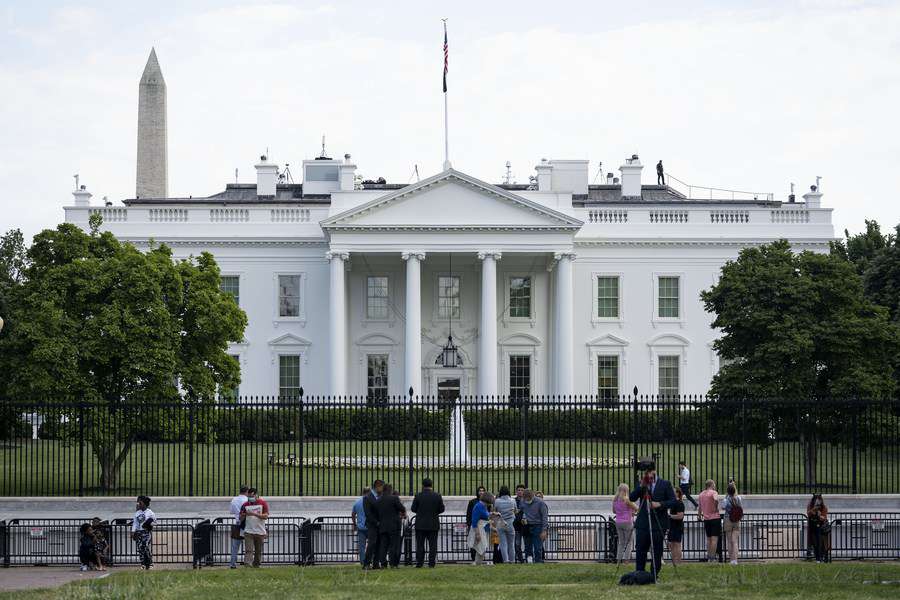White House supports legislation establishing Jan. 6 commission

Tourists are seen near the White House in Washington, D.C., the United States, May 14, 2021. (Xinhua/Liu Jie)
The administration of President Joe Biden "supports the proposed bipartisan, independent National Commission to study and investigate the facts and circumstances surrounding the January 6, 2021 attack on the Capitol," the White House said.
WASHINGTON, May 18 (Xinhua) -- The White House said Tuesday it supports the legislation to be voted on in the House later this week that will create a commission to investigate the Jan. 6 Capitol riot.
"The attack on the Capitol on January 6, 2021, was an unprecedented assault on our democracy, an effort to undo the will of the American people and threaten the peaceful transition of power," the White House said in an administration policy statement.
The administration of President Joe Biden, the statement added, "supports the proposed bipartisan, independent National Commission to study and investigate the facts and circumstances surrounding the January 6, 2021 attack on the Capitol."
The support from the White House came one day before the House is set to vote on the bill, on which a bipartisan agreement was reached last week. It also followed a statement released in the morning by House Minority Leader Kevin McCarthy opposing the legislation.
McCarthy, the top-ranking Republican in the House, argued that the proposed commission was too narrowly focused on the Jan. 6 attack, and that it should also look at left-leaning protests over last summer, the 2017 shooting at a Republican baseball practice, as well as the April 2 attack at the Capitol that killed a Capitol Police officer.
Under the bill, the commission would include five members, including a chair, appointed by House Speaker Nancy Pelosi and Senate Majority Leader Chuck Schumer, a New York Democrat, and another five members, including a vice chair, appointed by McCarthy and Senate Minority Leader Mitch McConnell of Kentucky.
That structure was the result of a compromise by the Democrats, given that the initial proposal by Pelosi was that the commission should comprise 11 members, seven of which should be Democratic appointees.
Another sticking point is whether the commission will have subpoena power, which was agreed upon in the bipartisan deal last week. Subpoenas could be issued when both the chair and vice chair of the commission agree or by vote of a majority of the commission's members.
"The nation deserves such a full and fair accounting to prevent future violence and strengthen the security and resilience of our democratic institutions," the White House said in its statement.
Photos
Related Stories
- Various sectors in Hong Kong hope to complete local legislation to improve electoral system as soon as possible
- White House announces new actions to curb anti-Asian violence
- Some 4.2 million fewer women working than pre-pandemic: White House economic advisor
- White House chief of staff tests positive for COVID-19: media
- Democratic leader, White House official make progress on relief package
Copyright © 2021 People's Daily Online. All Rights Reserved.










